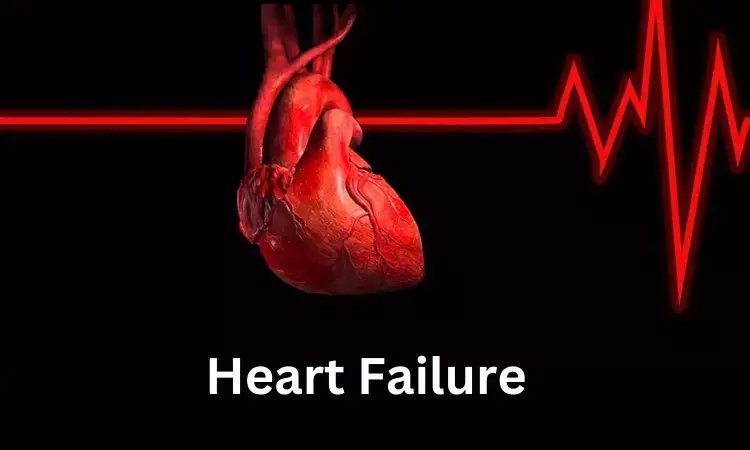- Home
- Medical news & Guidelines
- Anesthesiology
- Cardiology and CTVS
- Critical Care
- Dentistry
- Dermatology
- Diabetes and Endocrinology
- ENT
- Gastroenterology
- Medicine
- Nephrology
- Neurology
- Obstretics-Gynaecology
- Oncology
- Ophthalmology
- Orthopaedics
- Pediatrics-Neonatology
- Psychiatry
- Pulmonology
- Radiology
- Surgery
- Urology
- Laboratory Medicine
- Diet
- Nursing
- Paramedical
- Physiotherapy
- Health news
- Fact Check
- Bone Health Fact Check
- Brain Health Fact Check
- Cancer Related Fact Check
- Child Care Fact Check
- Dental and oral health fact check
- Diabetes and metabolic health fact check
- Diet and Nutrition Fact Check
- Eye and ENT Care Fact Check
- Fitness fact check
- Gut health fact check
- Heart health fact check
- Kidney health fact check
- Medical education fact check
- Men's health fact check
- Respiratory fact check
- Skin and hair care fact check
- Vaccine and Immunization fact check
- Women's health fact check
- AYUSH
- State News
- Andaman and Nicobar Islands
- Andhra Pradesh
- Arunachal Pradesh
- Assam
- Bihar
- Chandigarh
- Chattisgarh
- Dadra and Nagar Haveli
- Daman and Diu
- Delhi
- Goa
- Gujarat
- Haryana
- Himachal Pradesh
- Jammu & Kashmir
- Jharkhand
- Karnataka
- Kerala
- Ladakh
- Lakshadweep
- Madhya Pradesh
- Maharashtra
- Manipur
- Meghalaya
- Mizoram
- Nagaland
- Odisha
- Puducherry
- Punjab
- Rajasthan
- Sikkim
- Tamil Nadu
- Telangana
- Tripura
- Uttar Pradesh
- Uttrakhand
- West Bengal
- Medical Education
- Industry
Empagliflozin reduces heart failure events across spectrum of CKD: Analysis of EMPEROR trials

USA: Empagliflozin (Jardiance) consistently reduced heart failure (HF) events across the spectrum of chronic kidney disease (CKD), according to findings from the EMPEROR trials featured in the Journal of the American College of Cardiology.
Heart failure and chronic kidney disease are concurrent chronic conditions in which one syndrome raises the risk for the development and progression of the other. Patients with both CKD and HF are at greater risk of morbidity and mortality than patients with only one disorder.
The effect of heart failure to increase renal congestion and decrease renal perfusion can accelerate CKD progression. Conversely, CKD can limit diuretics' efficacy and foundational drug therapy. There is no clarity on whether CKD influences the effectiveness of SGLT2 (sodium-glucose co-transporter-2) inhibitors in heart failure patients with a reduced or preserved ejection fraction. Empagliflozin is an SGLT2 inhibitor that reduces the risk of significant HF outcomes in heart failure with preserved or reduced ejection fraction.
Javed Butler from Baylor Scott and White Research Institute in Dallas, Texas, USA, and colleagues aimed to evaluate the effect of empagliflozin across the spectrum of CKD in a pooled analysis of EMPEROR-Reduced and EMPEROR-Preserved trials.
For the study, a total of 9,718 patients were grouped into KDIGO (Kidney Disease Improving Global Outcomes) categories based on eGFR (estimated glomerular filtration rate) and urine albumin-to-creatinine ratio into very–high-, high-, moderate- and low-risk categories, comprising 17.0%, 21.9%, 29.1%, and 32.0% of the participants respectively.
The study led to the following findings:
- In the placebo arm, compared with lower risk categories, patients at higher risk experienced a slower rate of decline in eGFR but a higher risk of a composite kidney event.
- Empagliflozin reduced the risk of cardiovascular death or heart failure hospitalizations similarly in all KDIGO categories (HR: 0.81 for low-; HR: 0.63 for moderate-; HR: 0.82 for high-; and HR: 0.84 for very–high-risk groups).
- Empagliflozin reduced the rate of decline in eGFR, whether it was estimated by chronic slope, total slope, or unconfounded slope.
- Compared with the unconfounded slope, the magnitude of the effect on the chronic slope was larger, and the impact on the total slope was smaller.
- In EMPEROR-Reduced, patients at the lowest risk experienced the most significant effect of empagliflozin on the eGFR slope; this pattern was not observed in EMPEROR-Preserved.
"Empagliflozin reduced the risk of HF hospitalization or cardiovascular death across all KDIGO risk categories, whether the data in both the trials were pooled or analyzed separately," the researchers wrote.
Empagliflozin slowed the eGFR decline in all KDIGO groups, but the magnitude of these effects differed according to the model used to calculate eGFR slopes.
The researchers warned, "For both total and chronic slopes, treatment-related changes in eGFR slopes in patients with HF should be interpreted cautiously."
Reference:
The study "Efficacy of Empagliflozin in Patients With Heart Failure Across Kidney Risk Categories" was published in the Journal of the American College of Cardiology. DOI: https://www.jacc.org/doi/10.1016/j.jacc.2023.03.390
Dr Kamal Kant Kohli-MBBS, DTCD- a chest specialist with more than 30 years of practice and a flair for writing clinical articles, Dr Kamal Kant Kohli joined Medical Dialogues as a Chief Editor of Medical News. Besides writing articles, as an editor, he proofreads and verifies all the medical content published on Medical Dialogues including those coming from journals, studies,medical conferences,guidelines etc. Email: drkohli@medicaldialogues.in. Contact no. 011-43720751


